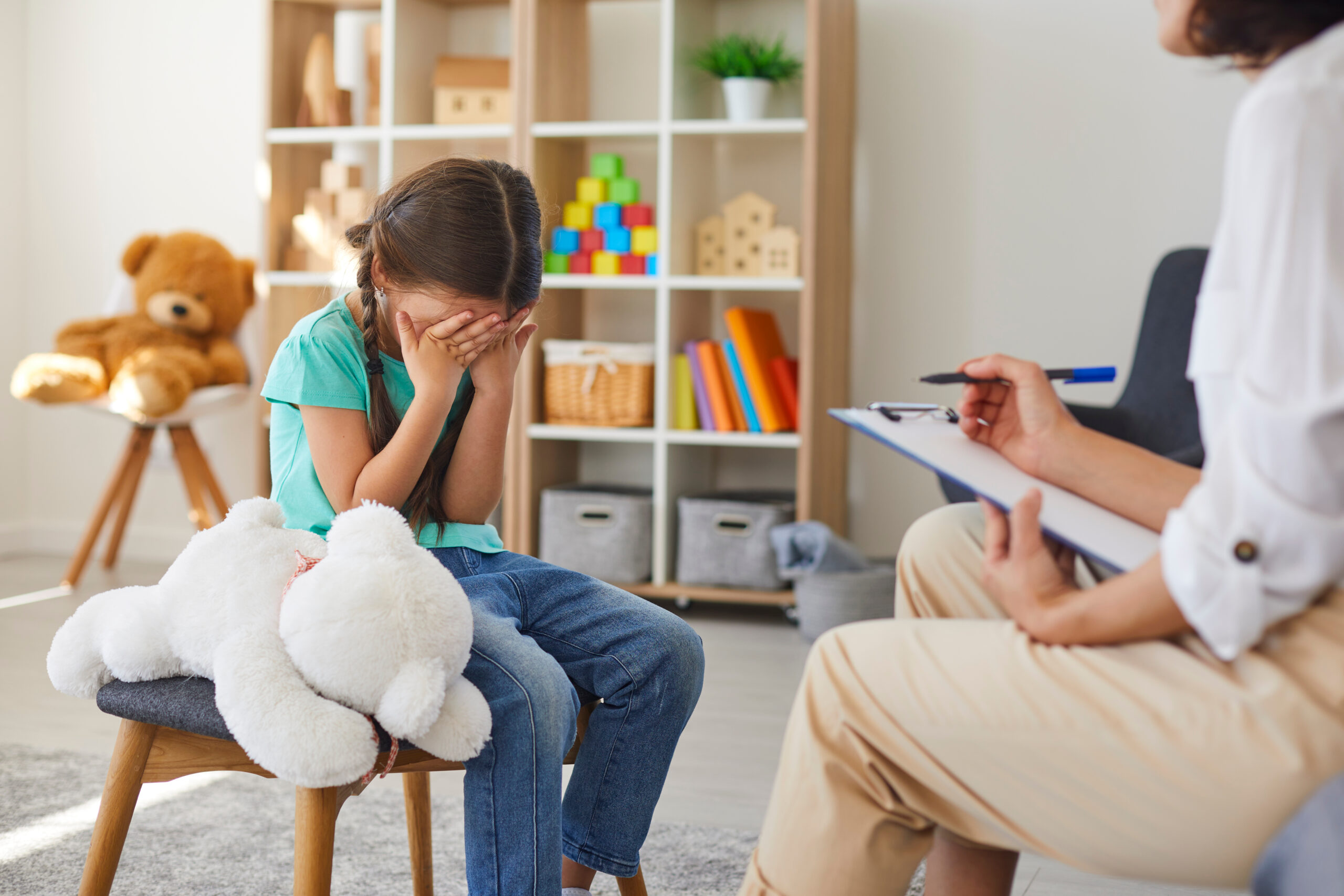Heal and Find Hope Through Trauma Therapy
Are You or a Loved One Struggling to Heal From Trauma?

Experiencing trauma can leave deep emotional scars that affect your sense of safety, relationships, and ability to navigate daily life. Do you or your child feel stuck in patterns of fear, avoidance, or overwhelm? Are intrusive thoughts, flashbacks, or emotional numbness making it difficult to heal?
For children and teens, trauma can manifest as changes in behavior, difficulty concentrating, or challenges in connecting with peers and caregivers. As an adult, you may feel burdened by shame, self-blame, or a sense of disconnection from yourself and others.
Whether the trauma stems from abuse, neglect, loss, or a sudden life event, therapy offers a safe space to process your experiences, rebuild resilience, and move forward with greater confidence and peace.
What Trauma Can Look Like in Different Ages
Trauma affects people in unique ways depending on their age and stage of life.
- Children:
- Behavioral changes like aggression, withdrawal, or regressive behaviors (e.g., bedwetting).
- Difficulty forming secure attachments or trusting caregivers.
- Physical symptoms such as stomachaches or headaches without a medical cause.
- Teens:
- Risk-taking behaviors, self-harm, or substance use.
- Struggles with identity, self-esteem, and peer relationships.
- Emotional numbness or difficulty managing anger and sadness.
- Adults:
- Persistent anxiety, depression, or PTSD symptoms.
- Difficulty maintaining relationships or boundaries.
- Chronic feelings of guilt, shame, or helplessness.
Trauma therapy provides age-appropriate tools to address these symptoms and foster healing.
How Trauma Therapy Can Help
Trauma therapy is a compassionate, evidence-based approach to help individuals of all ages process and heal from their experiences. Through a combination of therapeutic techniques, we help clients:
- Reclaim a sense of safety and control in their lives.
- Process traumatic memories in a supportive environment.
- Manage triggers, flashbacks, and overwhelming emotions.
- Build resilience and develop healthy coping mechanisms.
- Strengthen relationships and rebuild trust.

Take the First Step Toward Healing
You or your child don’t have to face the effects of trauma alone. With the right support, it’s possible to find healing, regain confidence, and build a brighter future.

Our Approach to Trauma Therapy
We tailor trauma therapy to the unique needs of each individual, whether they are a child, teen, or adult. Our approach is grounded in compassion, safety, and evidence-based practices to support healing and resilience.
Techniques We Use in Trauma Therapy:
- Child Parent Psychotherapy (CPP): Focuses on strengthening the parent-child relationship to provide safety and support for children who have experienced trauma.
- Cognitive Behavioral Therapy (CBT): Helps clients process and reframe the thoughts and behaviors that stem from trauma, empowering them to regain control over their lives.
- Integrative Attachment Family Therapy (IAFT): Addresses attachment-related trauma within the family system, fostering trust and emotional security.
- Internal Family Systems (IFS): Explores and heals the “parts” of oneself affected by trauma, promoting self-compassion and emotional integration.
- Somatic and Mindfulness Techniques: Supports grounding and reconnection with the body to alleviate the physical effects of trauma.
- Play Therapy: For children, play becomes a natural and safe way to process emotions and experiences.
- Trauma-Focused Cognitive Behavioral Therapy (TF-CBT): Helps individuals understand and reframe how trauma impacts their thoughts and behaviors.
Frequently Asked Questions
If you or your child are struggling with symptoms of anxiety, depression, avoidance, or difficulty in relationships after a traumatic event, therapy can provide the tools and support to move forward.
Yes. Children and teens process trauma differently than adults, and therapy provides age-appropriate strategies to help them heal. Techniques like play therapy and mindfulness can be particularly effective for younger clients.
Therapy is a safe, judgment-free space where you can share as much or as little as you feel comfortable. We are here to listen and support you with compassion and understanding.
The duration of therapy varies depending on the individual’s needs and goals. Some clients find relief in a few sessions, while others benefit from ongoing support over a longer period.